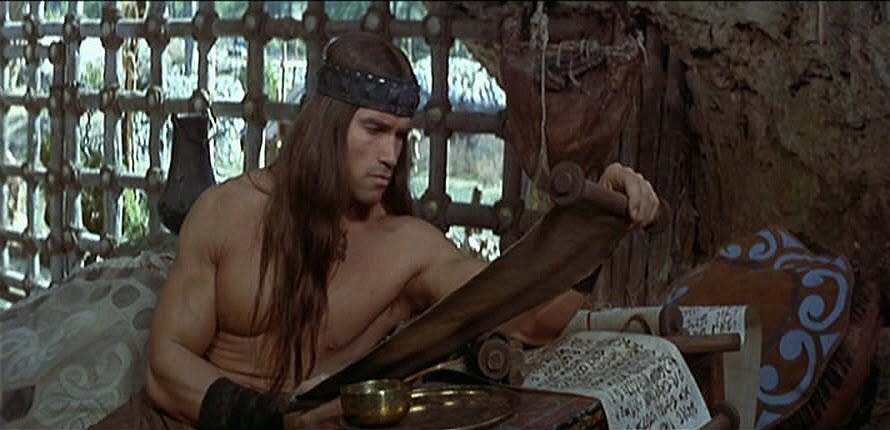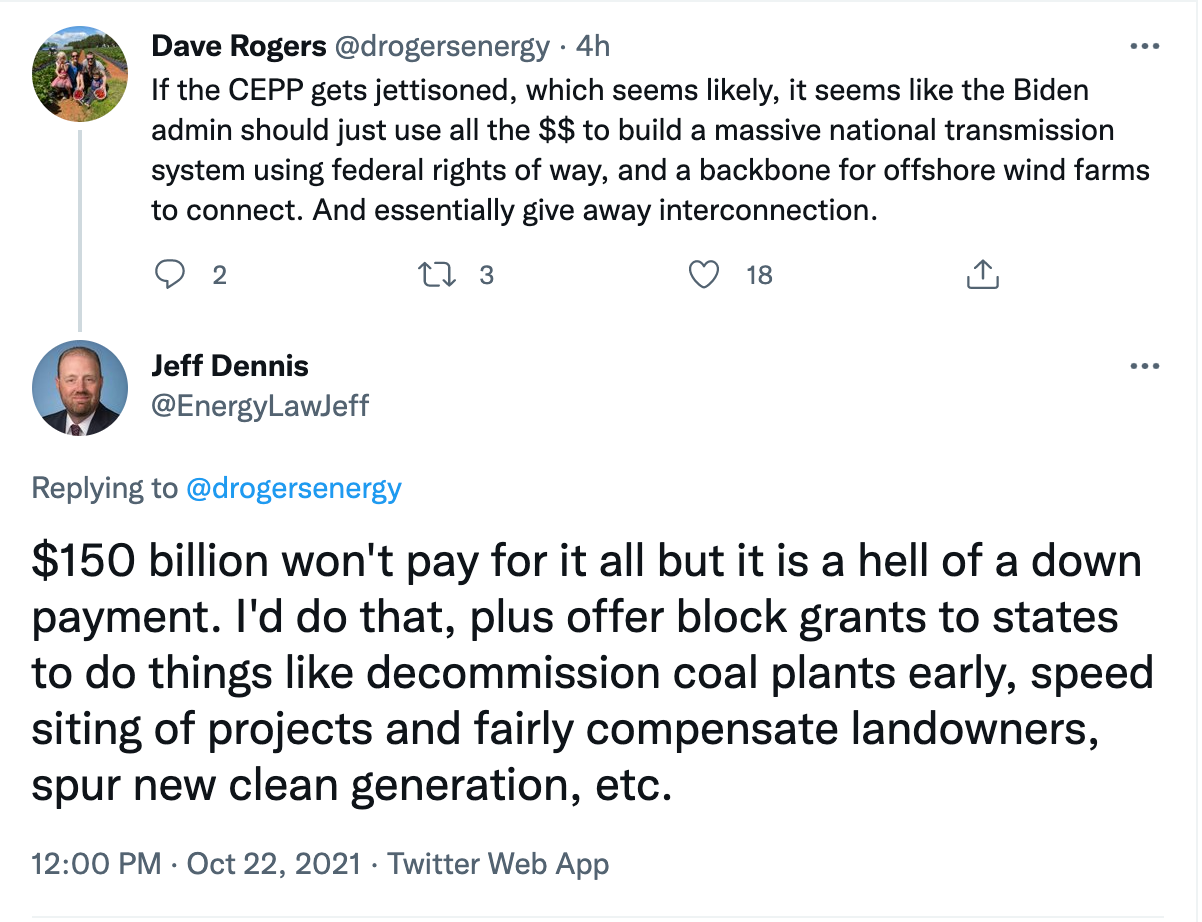Happy weekend, Barbarians. Let’s get after it.
Housekeeping
I was on a recent episode of Decouple. I love talking to Chris Keefer, the host, and this was no exception. This time he interviewed me about what I want out of Nuclear Barbarians, which naturally led to a broad range of topics. My hottest take is that we need to start figuring out how to legally attack and cripple major environmental NGOs. Listen here.
In case you missed it, here’s the latest podcast episode with Isaac Orr. He and I talked about what CEPP would do to Arizona but also discussed the coming energy crisis and a whole mess of other energy politics stuff. We talked about how programs like CEPP don’t factor in upfront costs like more transition, disregard reliability, and don’t appreciate how unreliable electricity makes everything more expensive. Isaac also clued me into how low coal reserves are in the Midwest going into this winter.
I wrote a brief thing for the Substack on what weightlifting taught me about the grid. It’s about principles of strength and why they’re important, especially for the grid. As Louie Simmons, founder of the strongest gym in the world, once said, “Weak things break.” Read here.
News Items
What’s the matter with California? A new piece by Mark P. Mills in City Journal looks into the battery backup delusions that lubricate the state’s renewable aspirations. Mills points out that backing up the California grid for several days with batteries would cost about $40 billion. He continues:
“In these days of profligate government spending, $40 billion might not seem like too much—except, of course, if the sunlight/wind drought lasted just one more day. In that case, California would need to have another $10 billion in batteries on hand. And since none of the batteries being built or planned today will last for the several-decade lifespan of normal grid equipment, those batteries will need replacement, raising the total investment well above $100 billion.”
The recent uptick of diesel generators in the state—enough to power 15% of its grid—reinforces the foolhardiness of California’s goals. As Madison Czerwinski tweeted, the Golden State’s diesel generator “fleet” outperforms its enormous battery investments by 24x. (I know, I know—generation isn’t storage. But tell that to the renewaphiles.) I live here and I worry that the old Alcoholics Anonymous adage about change will prove true for California’s green energy dreams: More pain is required. After all, as Adam Stein at Breakthrough wrote this week, the state still plans to close Diablo Canyon despite threats to reliability. Not good!
The Black Cascade—this is what I’m calling the problems going into this winter. I assume if you’re a subscriber you’re aware that fuel prices are high, storage is low, and it’s only autumn. The problems that arise from this will interpenetrate COVID issues and supply chain problems. We’re already seeing that in China. Currently, e a bunch of Mongolian coal drivers are lined up at the Chinese border. They’ve been unpaid and have had the coal flows between their country and China throttled by China’s COVID restrictions. Naturally, this will have implications for China’s fragile, coal-hungry grid. And since so many countries import from China that its grid problems will hit wallets worldwide.
Not just that but with all this craziness happening, American farmers are struggling to get things like tires, dozens of shipping freights eddy the water off the California coast in a worrying bottleneck. Energy touches all of this—as Isaac Orr told me, “Energy is the invisible ingredient in everything.” This is gonna get weirder and darker before it gets better. Hence, “The Black Cascade.”
Let’s talk about this exchange between Jeff Dennis and some other person.
So who is Jeff? Well, he’s a former FERC employee. He’s been a little miffed lately that half of the current FERC heads seem skeptical about RTOs and the reliability problems that renewables-centric green energy plans inspire. He’s not alone in his status as a FERC alumnus going hard in the paint for electricity wholesale markets. This summer nine former FERC chairs put their names on a letter to the current FERC heads recommending the expansion of RTOs to facilitate the Biden admin’s climate goals. Eighty percent of renewables deployment in America has been in RTO areas, they argued. That’s because the volatility RTOs incentive in their market structure wed well with the inherent unreliability of wind and solar.
That Jeff is here suggesting states should be incentivized to close coal prematurely is a huge red flag. We simply cannot afford to take yet more reliable generation offline and replace it with greater volatility. Of course, he also wants loads more transmission. I’ve written on the “transmission fetish” before for The Kernel—check that out here.
But Jeff also serves as the managing director of Advanced Energy Economy, a “[n]ational business group working to expand secure, clean, and affordable energy” dedicated to “[t]ransforming policy, expanding markets.” I won’t cast aspersions, but I know what a revolving door is. So, I’m starting to keep a closer eye on all this, especially because FERC is fighting about whether to create yet another RTO area in the southeastern US. Hold onto your power plants, folks. It’s about to get choppy.
Commentary
This week, a producer over at the show Breaking Points and The Realignment named James Lynch published a piece on the cult of Fauci in Newsweek. He brings up some salient points. Fauci has repeatedly lied to the American public and yet he’s the subject of a hagiographic documentary created by Disney and Discovery. Lynch asks who this documentary could possibly be for. “And the answer,” he writes, “contains a sad truth: This marriage of scientific malpractice and entertainment star power is for the millions of Americans for whom media fame and elite credentials are not only a stand in for authority but a replacement for effectiveness—even when lives are at stake.”
Haven’t we seen this in the energy realm as well? Figures like Mark Z Jacobson and Amory Lovins operate in a frictionless world of unanimous praise despite the evidence of their wretched sophistry piling up all around us. They aren’t the only ones. There’s a whole raft of environmentalists and culture warriors whose prominence serves as evidence of their goodness and rightness. To question either is to commit throughtcrime.
Well, we’ll see who’s laughing in the dark of winter. I want to believe this problem isn’t intractable, that cooler and saner heads can prevail over these merchants in the temple. As ever, more will be revealed.
Want to support my work?
Share and subscribe!





